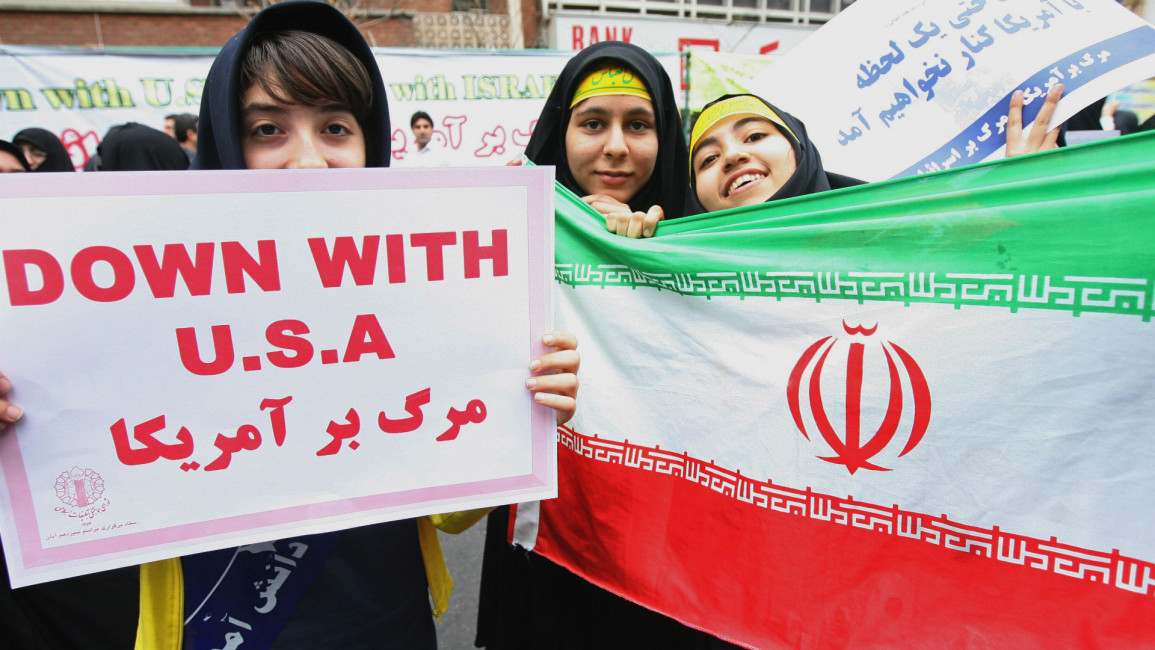
Iranian civil society in despair
Iran is facing several crises at home and abroad, that without more public participation will lead to intractable and unmanageable disasters.
Widespread addiction and substance abuse, high crime rates, economic depression, school dropouts in their millions, hundreds of thousands trapped in child labour, empty seats in higher education facilities, corruption, and double-digit unemployment rates can not be tackled without a strong civil society, replete with institutions such as NGOs, non-profits, charities and professional associations.
However, the state of Iranian civil society is weaker than ten years ago, when reform movement activists and some officials in the Khatami administration were trying to make the government smaller and more effective by higher civil society participation.
Right after the 2005 presidential election, this policy was reversed.
NGOs
"In 2005, more than 4,000 NGOs were active in
According to some estimates, the total number of civil society institutions at the end of Khatami's administration was around 8,300. What was Ahmadinejad's policy that caused civil society to shrink? Does the Rouhani administration have the capability to restore civic life?
Labour unions
Teachers' unions all over the country have been under constant pressures in the past decade. Organisers have been imprisoned and exiled for years. As a result, teachers have not been able to gather, fundraise and make their demands public for years.
"In spite of the high pitch and sparkling slogans of the administration, there is no fundamental development in problematic and critical issues of the society," said the teachers' union in September 2015.
| From the perspective of the Revolutionary Guards... every social and economic demand is a national security threat |
From the perspective of the Revolutionary Guards - whose report was critical in the persecution of teachers' union members - their every social and economic demand is a national security threat.
Student bodies
Hundreds of student activists left the country after the 2009 crackdown to avoid mass arrests and imprisonment. The student activists who were arrested received more years in prison than dissident artists, lawyers and workers.
In the past six years, there has been no sign of independent student organisations' activities in Iranian universities. Members of existing student associations are picked by the military and security establishment.
Media associations, cultural societies
Contrary to the promises of the Rouhani administration to let journalists revive their association, they have not been able even to have a meeting about their next convention.
The press association was dissolved and banned in 2008 and its members have not been able to have any activities. Almost every member of
Mass society vs civil society
The official policy of the guardian jurist is to build a mass society in Iran in which everybody is a replica of his ideological sister or brother in ummah (the Islamist community in Shia Islamists' interpretation), with no specific identity, promoting mass culture and large-scale, impersonal, social institutions, while following the rules of the Islamist lifestyle manual as sanctioned by the religious establishment.
In this society, human beings are not citizens but subjects of the guardian jurist.
In contrast, membership of civil society institutions gives an identity or identities as a professional or specialist or activist to its members. Civil society institutions are financially and administratively independent from the government.
Both Khomeini and Khamenei have had intolerable and violent confrontations with Iranian and international civil society institutions.
They both felt threatened by independent institutions. They have praised members of military and paramilitary institutions, and downgraded members of civil society institutions. Khomeini and Khamenei have never officially had meetings with political party leaders in their capacity.
| Khomeini and Khamenei both felt threatened by independent institutions |
The government's reaction to
Some members have always been in prison or under persecution. In the 1990s, some members of this association, such as Mohammad Mokhtari and Mohammad Jafar Pouyandeh, were allegedly suffocated by security agents who got the killing orders from powerful clerics.
Their bodies were found in a desert area close to
Furthermore, the government has tried to establish fake writers' associations with names such as "Iranian Pen Association" to present it as a legitimate body in international arenas.
The same thing has been done in academia, art and culture. The Sacred Defense Cinematic Association and Muslim Artists' Society were established to marginalise House of Cinema, a conglomerate of film industry associations.
The Muslim Publishers Society functions as a government-sanctioned parallel alternative to the Iranian Publishers Association.
Another government tactic to make independent associations irrelevant is to make their internal elections meaningless. People who nominate themselves for medical, engineering, trade and bar associations must now be confirmed by the government.
In every election, a handful of nominees are disqualified based on ideological and political reasons. In this way, only people who are loyal to the guardian jurist and ruling clerics are elected to be a delegate or member of board of trustees or councils of these associations.
Majid Mohammadi is an Iranian-born academic and the author of several books in Persian and English on politics, arts and religion in Iran.
Opinions expressed in this article remain those of the author and do not necessarily represent those of al-Araby al-Jadeed, its editorial board or staff.




